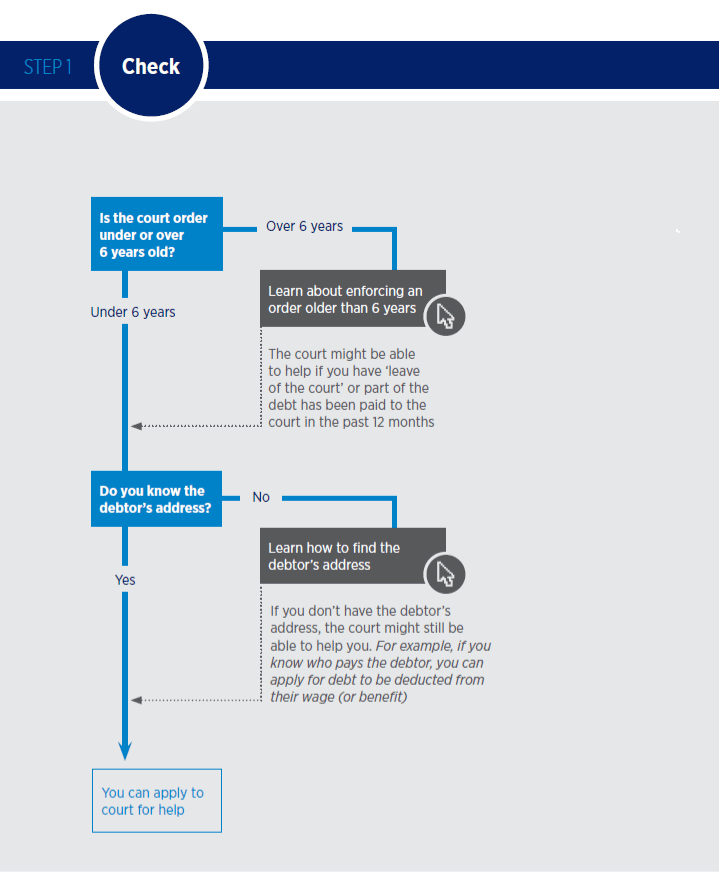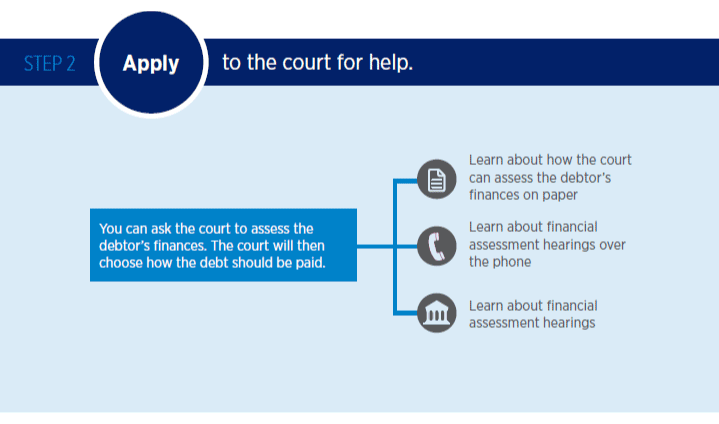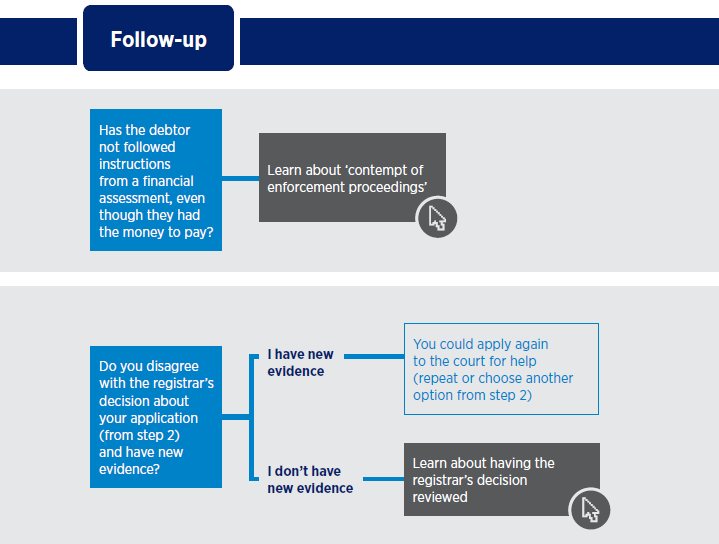Collecting civil debt: information for creditors
You can ask the court to help you collect your civil debt if the debtor does not pay. This is called civil enforcement. You will manage the civil enforcement process yourself, and you may have to pay fees.
Find out about civil enforcement fees
You can only begin civil enforcement when two conditions are met
You can only ask the court to take civil enforcement action against a debtor when two conditions are met:
- A court or tribunal has found in your favour and orders a person or organisation to pay you civil debt.
- The 48 hour stand-down period has passed since the order was made and the person or organisation has not paid you on time.
Find out about the 48 hour stand-down period
You must manage and apply for civil enforcement yourself
The court does not enforce judgment orders automatically. If you are a creditor and want the court to take enforcement action against a debtor, you must:
- select the enforcement actions you think are best for your situation
- apply to the court to carry out the enforcement actions you have selected
- give the court correct, up-to-date information about the debtor to support the specific enforcement actions you are requesting
- pay the associated fees for each enforcement action you request.
Usually, the court will make your contact details available to the debtor unless you specifically ask them not to.
Deciding what enforcement action to apply for
If you had a civil case at court and the other person (the debtor) has been ordered to pay you but they haven't, the court might be able to help you get money.
Note: The information contained in the graphic below is also available in a text only format for those who have difficulty viewing the graphic:
Alternative text for civil enforcement graphic

Learn about enforcing an order older than 6 years
Learn how to find the debtor's address

Learn about how the court can assess the debtor's finances on paper
Learn about financial assessment hearings over the phone
Learn about financial assessment hearings
You can make 1 or more of the following applications:

Learn about deductions from wages or benefits

Learn about asking the court to seize their property

Learn about garnishee proceedings

Learn about stopping the sale until the debt is paid

Learn about contempt of enforcement proceedings
Learn about having the registrar’s decision reviewed
This page was last updated: